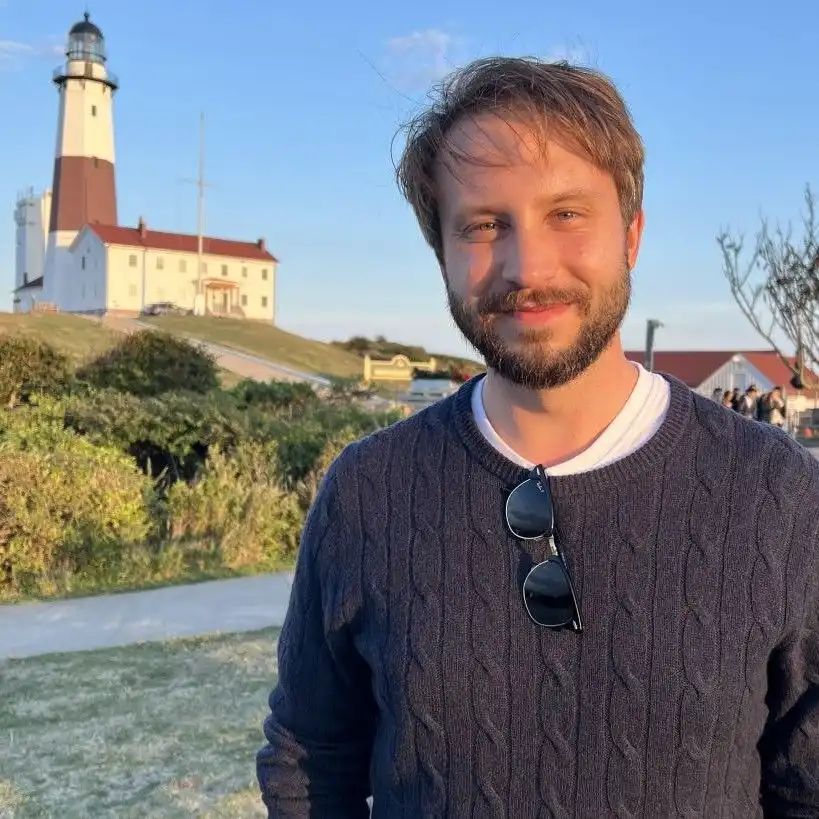Home>Dmitry, Political Affairs Officer with the UN Department of Political and Peacebuilding Affairs
25.09.2025
Dmitry, Political Affairs Officer with the UN Department of Political and Peacebuilding Affairs

Dmitry Borisov has graduated cum laude in International Security with a focus on the Middle East and Sub-Saharan Africa. Since 2023, he has served as a Political Affairs Officer with the UN Department of Political and Peacebuilding Affairs (DPPA) in New York. Previously, he worked with a UN body investigating allegations of gross violations of human rights and international humanitarian law, following five years with the International Committee of the Red Cross (ICRC) in Geneva and the West Bank.
What are your main responsibilities?
As a Political Affairs Officer, I work on peace and security issues by tracking and analyzing political, security, and human rights developments in a specific region, providing early warning of emerging crises, and drafting analytical reports and briefing notes for senior UN officials, up to the level of the Secretary-General. Within my department, we assist in conflict prevention, resolution, and peacebuilding, and support good offices, peace, and dialogue processes. My team is specifically responsible for the South Caucasus and Central Asia. In my role as Desk Officer for Armenia, Azerbaijan, and Georgia, I have closely followed the peace process between Yerevan and Baku, while also supporting the UN’s special political mission to the Geneva International Discussions (GID).
How did you prepare for this job?
I got my current job after passing the UN Young Professionals Programme (YPP) exam in Political Affairs and Human Rights, by which time I had already gained a few years of professional experience. I vividly remember writing in my motivational statement for PSIA that I wanted to take this exam - and almost ten years later, I did. Throughout that journey, my Sciences Po professors and classmates have been an enormous support for me, offering insight and advice, agreeing to provide reference letters, and so much more.
What is the most fascinating part of your job?
By far the most fascinating part of working in political affairs at the UN Secretariat is witnessing the UN machinery in action - from attending Security Council sessions to meeting heads of state and government and seeing firsthand what is discussed behind closed doors at the highest level. At the same time, it is deeply rewarding to have the opportunity to live out your values and realize that you are, in your own small way, contributing to sustaining dialogue, preventing and de-escalating conflicts, as well as helping strengthen the Organization’s understanding of specific political issues.
How did your PSIA experience contribute to the position you hold today?
Apart from the excellent academic training I received through my Middle East concentration, I was fortunate enough to learn from seasoned diplomats and mediators such as Alvaro de Soto, Ghassan Salamé, and Lakhdar Brahimi, who even arranged for our entire class to visit the headquarters of the African Union in Addis Ababa. PSIA selected me, along with several fellow students, to represent Sciences Po at the 2014 Doha Forum. I will also never forget the inspiring talks delivered to us in the Boutmy Auditorium by Kofi Annan and Ban Ki-moon. PSIA truly made it easy to stay motivated. Beyond academics, PSIA also taught me how to multitask. The word “busy” gained a whole new meaning and since then many challenged have seemed fairly easy by comparison. The breadth and richness of the curriculum, along with the discipline and the skills required to keep up with readings, assignments and application deadlines, have stayed with me to this day. I am also grateful for the opportunity to spend a semester on exchange at the Elliott School of International Affairs at George Washington University in Washington, D.C.
What advice would you give to current students?
Invest in your education, make meaningful connections with your professors and peers, and build up your CV with experiences relevant to the career path you envision for yourself - without growing too rigid or getting hung up on big names or organizations. Stay flexible and don’t get discouraged; we never have enough information to know what is, after all, good news or bad news. A rejection from one place might turn out to be a blessing, while an offer from somewhere you applied almost in passing might lead you exactly where you want to go. Above all, my advice is to keep a sense of perspective - much like in the apocryphal anecdote: “What are the most important implications of the French Revolution? Too early to tell.”
Information Sessions: Masters

Find out more about the Masters programs and the wide choice of specialisations offered by the 8 Schools of Sciences Po during our webinars dedicated to applicants.